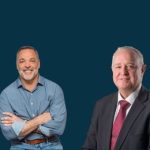 Workshare has published its latest set of accounts for the year ended 31 December 2016, which show that the London-headquartered company made of a loss before tax of almost £1.6m and has significant debt as it comes towards the end of a move from a perpetual cash to SaaS model.
Workshare has published its latest set of accounts for the year ended 31 December 2016, which show that the London-headquartered company made of a loss before tax of almost £1.6m and has significant debt as it comes towards the end of a move from a perpetual cash to SaaS model.
The loss is down from £4,103k at the end of December 2015 and Workshare’s chief financial officer Peter White(pictured), who joined from B2B mobile marketing technology and services group Lumata in August 2015, told us: “A lot of businesses have tried and failed to lose the perpetual cash drug – from a top line revenue basis those that can hold flat rather than go through the J Curve are doing well – but Workshare has got through that, we’re 95% through.”
He adds: “We’re profitable. We’ve come through the other side and we’re generating cash, which when I came in we weren’t.”
Workshare, which is backed by Scottish Equity Partners, has £23m of debt of which £18.3 is ‘deep discounted’ meaning it’s not repayable until SEP sells. Included in that £23m is a £5.2m revolving credit facility (RCF) with Wells Fargo.
White said: “We have a £7.5m loan facility and at the end of 2016 had only drawn £5.2 and we’ve been in net repayment of that.”
That £7.5m facility falls due in April 2018, when Workshare will have to refinance with Wells Fargo or another bank. White said: “I have never met a more supportive bank. The more forward-thinking banks don’t require cash profitability to lend and that includes a number in the technology and SaaS space. Salesforce has never made profit, is Salesforce doing badly?”
Workshare has been investing in its secure file sharing capability and online workspace Transact, which White says it has been getting market ready and bolting on to the back end of the Workshare platform.
White said: “Secure and Transact revenue is growing by 247% CAGR [compound annual growth rate] albeit from a much lower base.”
He adds: “The comparison business is great and it grows. Others are more nascent but growing exponentially.”
Workshare was acquired in 2012 by CEO Anthony Foy and original Workshare co-founder and CTO Barrie Hadfield, through a merger with SkyDox. White says: “When they came in 2012 a lot of work needed to get done. A lot around the core product being updated, a lot of investment in products, and they made a conscious decision to invest in R&D and we’ve done that.”
The most recent accounts show that investment in R&D to the end of December 2015 was £4.2m.
In a key performance indicator used to measure the current and past value of a company, average revenue per employee has gone up from £86.5k to £109k in 2016. The accounts say: “Revenue per employee has increased following as a result of the increase in revenue following the investment in 2015 in non-sales related staff numbers to enhance development and customer support.”
There are persistent rumours that SEP is looking to sell Workshare, which White was unable to confirm or deny but he said: “Private equity funds are always looking at opportunities. There are so many factors including pressure on the fund to close. If all the other funds have liquidated and made a massive profit they may want to sell to close the fund.
“It’s a fact of life of being private equity held but I strongly believe given the growth of our new financial products, the stability of our customer base and our penetration in legal, among other factors, that we are only going up the food chain in private equity.”







